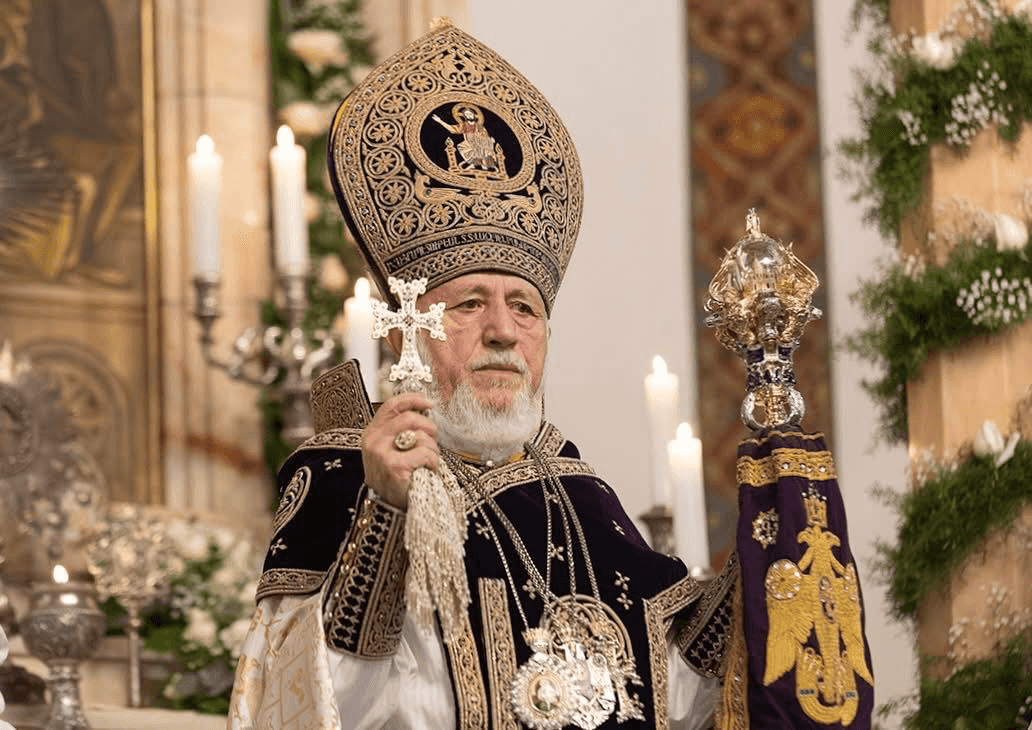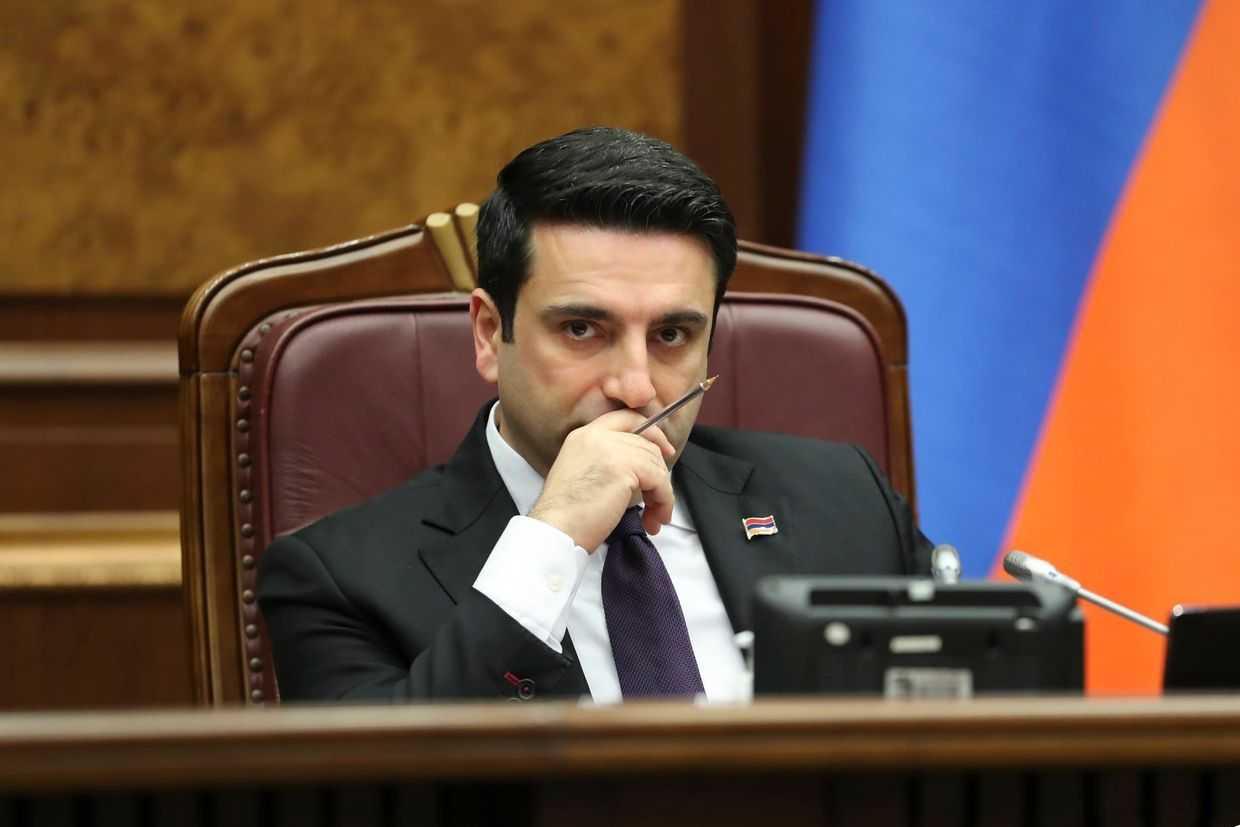
Armenia has suggested that a peace deal with Azerbaijan is in sight as Azerbaijani authorities suggest talks will continue in December after COP29.
‘There are still one or two bits of wording, articles, on which work continues more intensively than in the previous period’, Armenian Foreign Minister Ararat Mirzoyan said in parliament on Wednesday. Mirzoyan added that negotiations are taking place ‘even more cooperatively, in a more constructive atmosphere’.
He added that they were ‘really very close’ to having a final agreement on the text for the agreement.
Since Armenian Prime Minister Nikol Pashinyan and Azerbaijani President Ilham Aliyev held talks at a BRICS summit in Russia in October, both sides have expressed increasing positivity about the negotiations. As a result of the meeting, Pashinyan and Aliyev instructed their foreign ministers to finalise a peace deal ‘in the shortest possible period’.
[Read more: Armenia has ‘cautious optimism’ on chances of successful peace treaty with Azerbaijan]
On Wednesday, Pashinyan said that Armenia had conveyed its proposals about the remaining two articles of the draft peace treaty to Azerbaijan two days earlier.
Azerbaijan had sent its proposals on 5 November.
Earlier that day, Aliyev’s aide Hikmat Hajiyev told Russia’s TASS that ‘a new process will begin’ regarding negotiations between Armenia and Azerbaijan on a text of the peace treaty, probably beginning from December. Hajiyev said that until the end of November, ‘the main topic on Azerbaijan’s agenda is COP29’.
At the same time, Hajiyev blamed Armenia for the ‘belated process’, claiming the Armenian side did not respond to their proposals regarding the text of the peace treaty ‘in time’. He added that the ‘discussions and negotiations are continuing at the expert level,’ as there are still outstanding issues regarding the wording of the document.
Nonetheless, Hajiyev praised the Kazan meeting between Aliyev and Pashinyan, saying it had created a positive impetus and noting that their ‘intention is to continue the negotiations based on this momentum’.
On Wednesday, Pashinyan expressed satisfaction with the meeting, noting that he had never had such a long conversation with Aliyev. He considered the ‘most important part’ of the talks that ‘an idea was voiced’ for the signing of a strategic deal to ensure long-term peaceful coexistence, not only a peace treaty.
Peace talks have floundered since September, after Pashinyan proposed to sign an interim peace treaty based on articles already agreed upon. Azerbaijan refused despite similarly proposing to do so earlier this year, with Aliyev suggesting that the treaty would be signed ‘when we agree on everything’.
Last week, Farid Shafiyev, the chair of an Azerbaijani pro-government think tank, suggested that three sticking points remain in the peace treaty negotiations: Armenia’s constitution, the expansion of ‘diplomatic and legal warfare’, and the presence of the EU Monitoring Mission in Armenia.
Negotiations towards unblocking railways ‘underway’
Although both sides agreed in August to remove the arrangement of transport routes from the peace treaty and instead ‘to refer it to a later stage’, talks are underway in parallel to peace treaty negotiations.
Pashinyan said that Armenia and Azerbaijan can have a resolution on the issue of opening regional communications. He considered it to be one of the important developments in Kazan and noted that the Armenian side conveyed a written proposal to Azerbaijan.
Mirzoyan mentioned negotiations toward the restoration of routes, particularly the railway, are underway.
On 1 November, Armenian Deputy Prime Minister Mher Grigoryan and his Azerbaijani counterpart Shahin Mustafayev met to discuss border delimitation and demarcation. They also had a separate discussion on issues of transport and communications.
Following this meeting, Armenian Parliamentary Speaker Alen Simonyan did not rule out that the sides might continue to negotiate in a bilateral format under the leadership of their respective deputy prime ministers.
On Wednesday, Russian Foreign Ministry spokesperson Maria Zakharova slammed the West, claiming that in June 2023, within the framework of the Trilateral Working Group, ‘we were close to the practical restoration of transport routes in the region. However, under pressure from the West, Yerevan “froze” its participation in the group, and then in all trilateral formats’.
The group, consisting of representatives from Russia, Armenia, and Azerbaijan, was formed in January 2021 as part of the ceasefire agreement that ended the Second Nagorno-Karabakh War. One of the articles of the agreement entailed the eventual unblocking of all economic and transport links in the region.
In October, Grigoryan said that talks on the unblocking of regional communications between him and his Azerbaijani and Russian counterparts have been paused due to the lack of consensus on fundamental issues.









